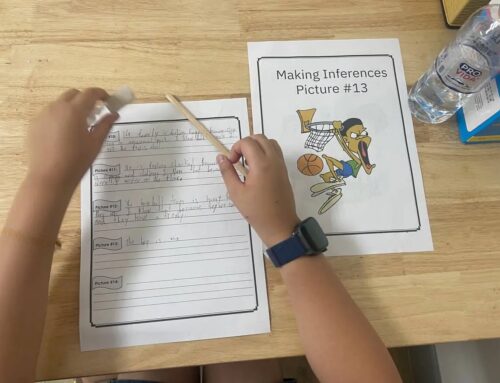[ad_1]
Selective mutism is more than just shyness. For many children in Cambodia, especially in school or social settings, it’s a condition that can significantly impact their communication, confidence, and learning. At OrbRom Center in Phnom Penh, our speech therapists work closely with families and educators to help children overcome the barriers of selective mutism and find their voice in a supportive and understanding environment.
Understanding Selective Mutism
Selective mutism is an anxiety-based communication disorder where a child who can speak comfortably in familiar environments (like home) becomes unable to speak in specific settings, such as school or public places. This silence isn’t a choice—it’s a response to overwhelming anxiety.
In Cambodia’s classroom culture, where children are often encouraged to answer questions or speak in front of others, selective mutism can be misunderstood as stubbornness or disobedience. However, understanding that it stems from anxiety—not defiance—is the first step toward effective intervention.
At OrbRom Center, our trained speech therapists specialize in identifying the signs of selective mutism early. They collaborate with parents and teachers to create a calm and predictable communication environment where children can gradually feel safe enough to express themselves.
The Role of Speech Therapy in Selective Mutism Treatment
Speech therapy plays a vital role in helping children with selective mutism develop confidence and communication skills. The goal isn’t just to make the child talk—it’s to reduce anxiety around communication and build trust through gentle, evidence-based approaches.
At OrbRom’s speech-language services, therapists use techniques such as:
-
Gradual exposure and desensitization – Children are slowly introduced to speaking situations, starting with whispering or non-verbal communication before progressing to words and sentences.
-
Play-based communication – Using games, storytelling, and role-play helps children practice speech in a fun and pressure-free way.
-
Collaborative support – Therapists guide teachers and parents on how to respond to silence with empathy and how to encourage participation without pressure.
-
Visual supports and AAC (Augmentative & Alternative Communication) – For some children, tools like picture cards, gestures, or communication apps can help them express their needs while building verbal confidence.
Each child’s therapy plan is personalized based on their comfort level, cultural background, and daily environment. Our therapists understand that communication is deeply influenced by both emotional and social contexts—especially in multilingual settings like Phnom Penh.
Creating a Supportive Environment: The School and Family Connection
Overcoming selective mutism requires teamwork. Parents, teachers, and therapists must work together to create safe spaces where communication can flourish.
At home, parents can support progress by:
-
Avoiding direct pressure to speak (“Say hello to your teacher!”)
-
Praising small steps like gestures or eye contact
-
Engaging in interactive play that doesn’t focus on speech but encourages connection
In schools, teachers can:
-
Use predictable routines to reduce anxiety
-
Allow alternative ways to respond (like pointing or nodding)
-
Provide gentle encouragement rather than demand verbal responses
OrbRom Center partners with local schools in Phnom Penh to provide special needs intensive intervention and teacher training, ensuring every child—whether verbal or nonverbal—has the opportunity to learn and participate fully.
Why Early Intervention Matters
The earlier selective mutism is addressed, the greater the chances of success. When untreated, the condition can lead to academic struggles, social isolation, and long-term anxiety. Speech therapy, combined with emotional support, helps children break the silence at their own pace.
Through comprehensive assessments, our therapists identify the child’s communication strengths, triggers, and comfort zones. This information helps guide both therapy sessions and school strategies, ensuring consistent progress across all environments.
OrbRom’s holistic approach integrates occupational therapy when sensory sensitivities contribute to anxiety—helping children regulate emotions, manage transitions, and feel more secure in their surroundings.
Empowering Children to Communicate with Confidence
Speech therapy for selective mutism is not about forcing speech—it’s about empowering communication. At OrbRom Center, we celebrate every milestone: a whisper, a smile, a nod, or a single word. Each small success builds toward lasting confidence and independence.
Our team of dedicated speech-language pathologists in Phnom Penh believes every child deserves to be heard. With patience, compassion, and collaboration, selective mutism can be overcome—one word at a time.
[ad_2]
Source link






